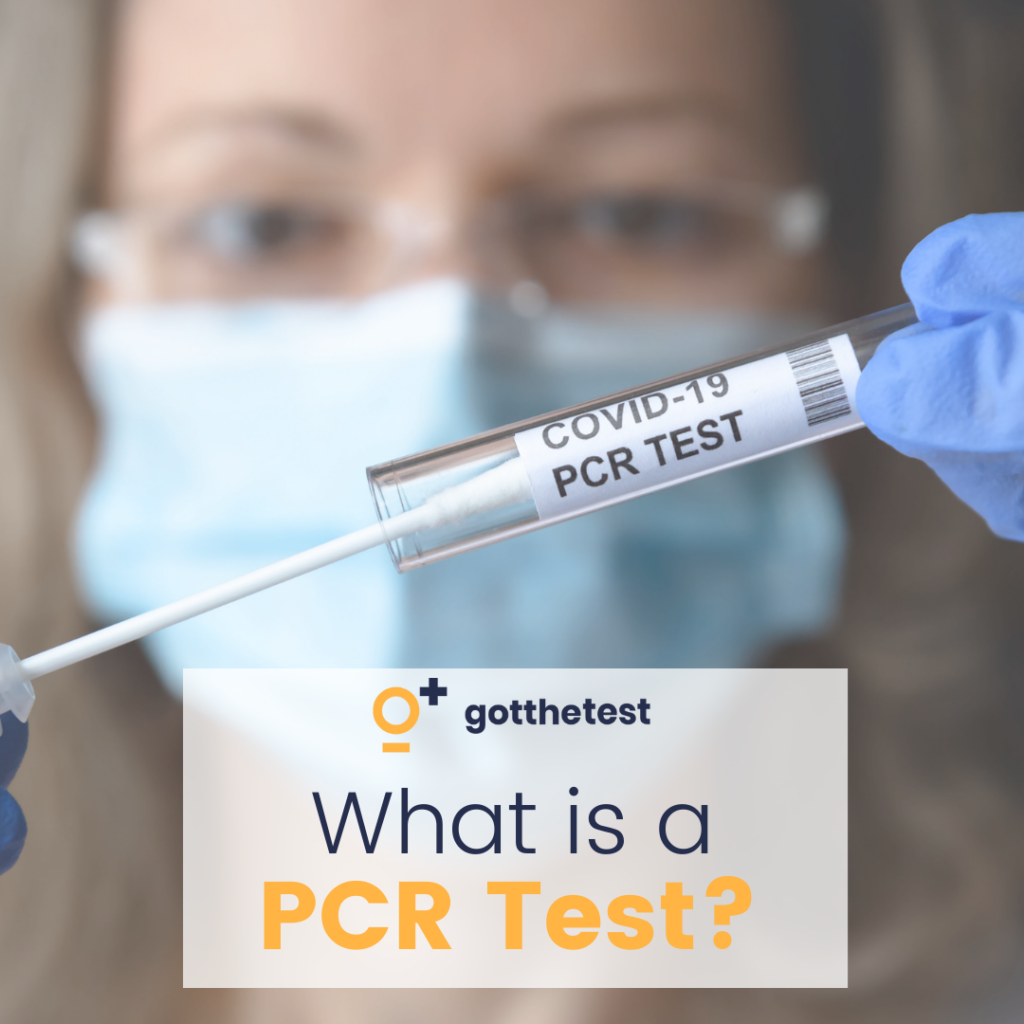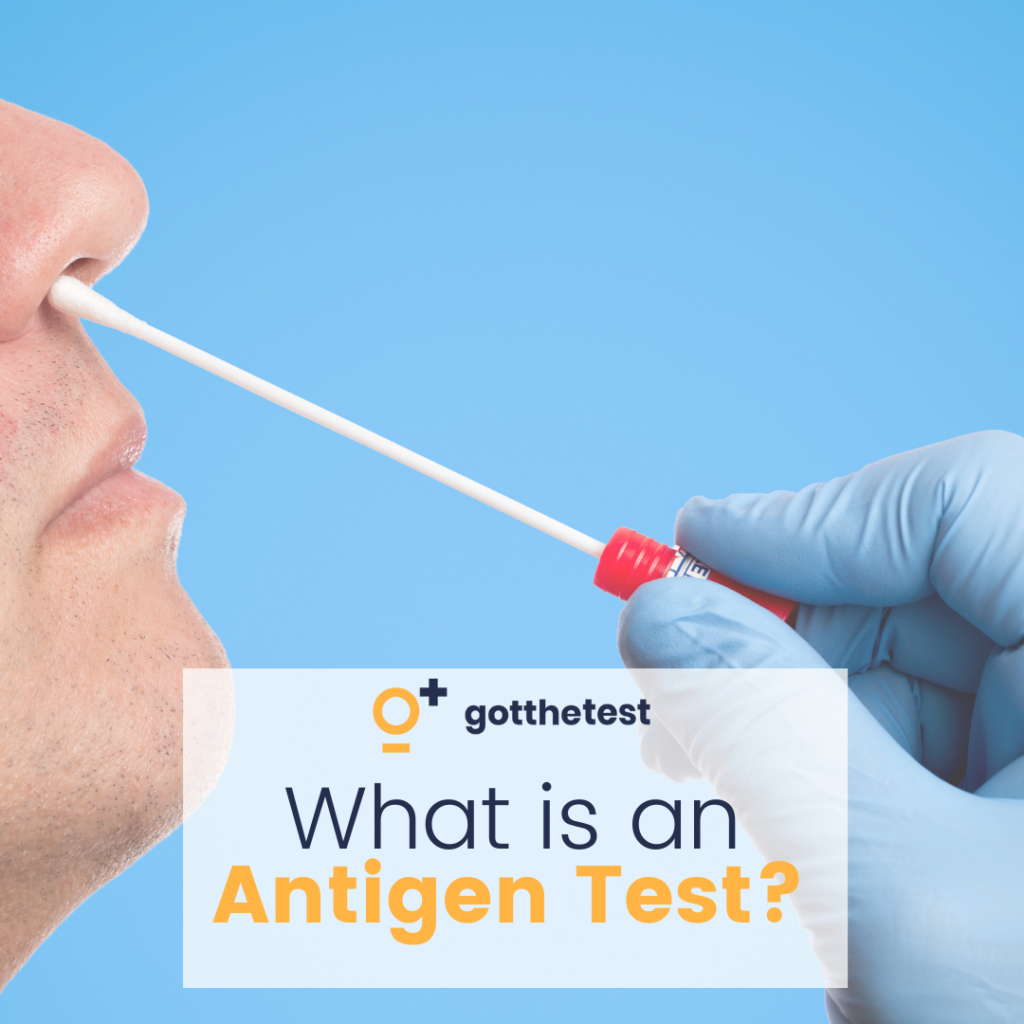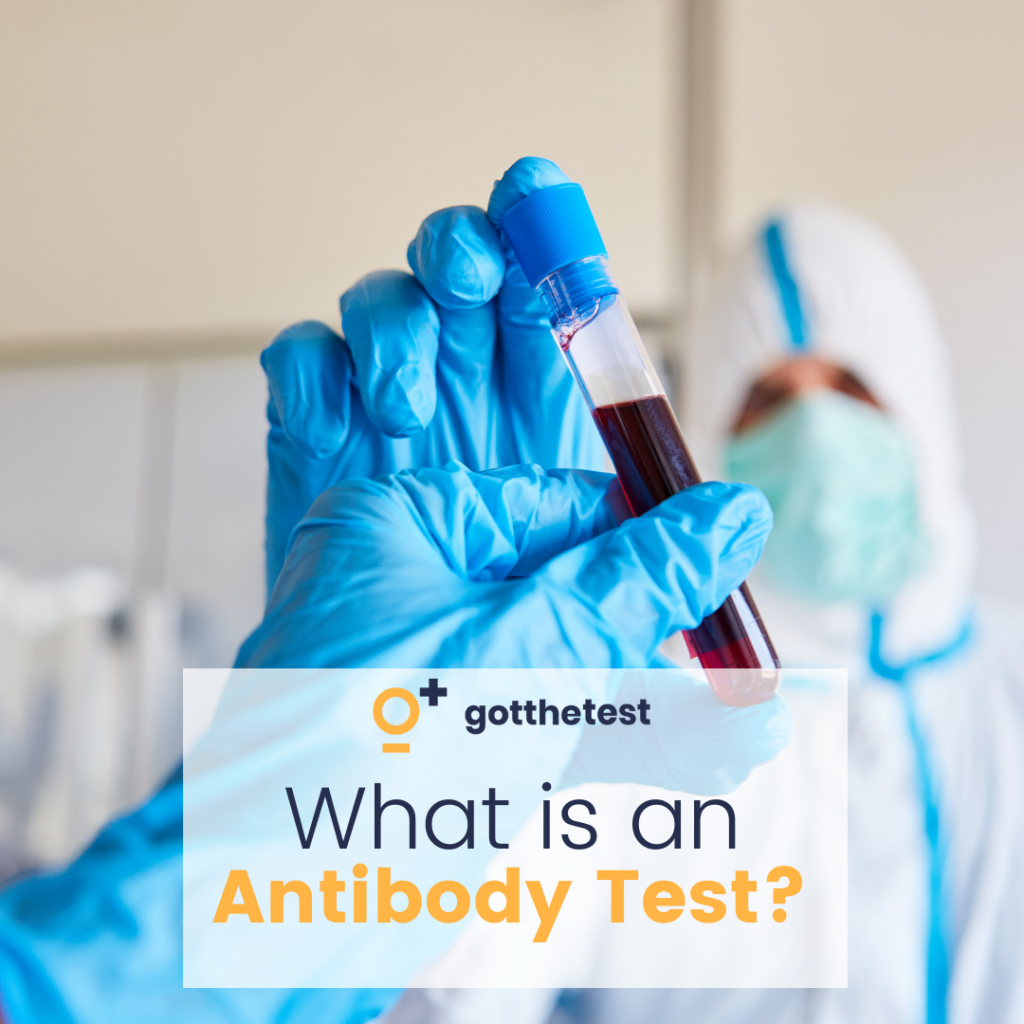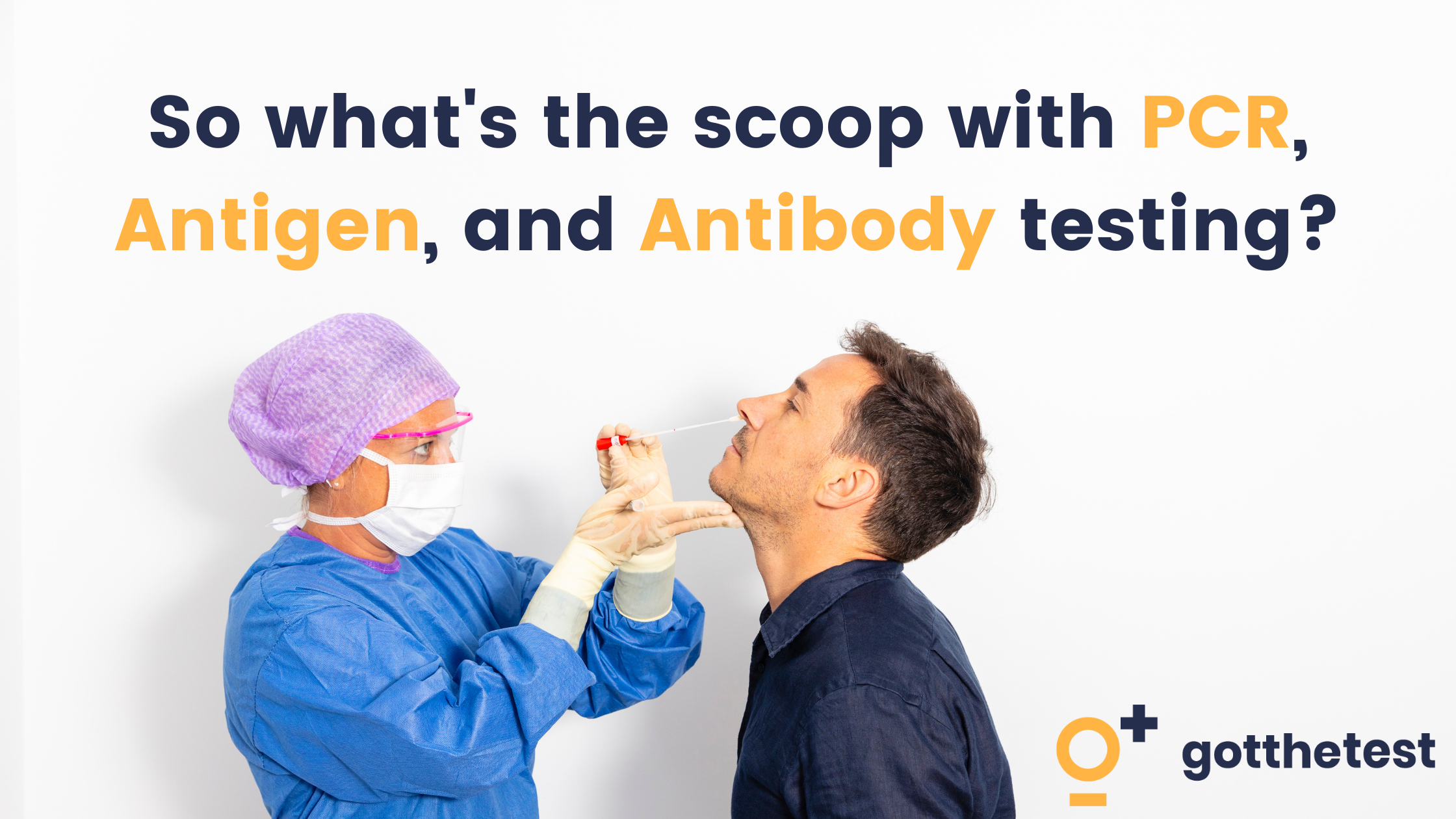We're all familiar with the buzzwords PCR, antigen, and antibody by now, but what do they all really mean? In the simplest of terms, we'll let you know the scoop on these testing types and their differences. Although these diagnostic testing methods have become commonplace during the COVID-19 pandemic, they are actually used across a bunch of other diseases and viruses too (aka they're here to stay & you should get to know them!).
What is PCR testing?

Polymerase chain reaction (PCR) tests screen for the presence of viral RNA, which is detectable in the body before symptoms develop or antibodies form. This allows the PCR test to discover if the virus is present or not very early on in the patient's illness. A PCR test includes sample collection through either a nasal swab or saliva collection tube. After collection, the sample is sent to a lab for testing. At the lab, the respiratory material from your sample is mixed with special chemicals in a machine to make the viral RNA detectable and signal either a positive or negative diagnosis. Typically, you should receive results from the lab within 48 hours, but with the backlog of testing, labs can experience delays that may cause your results to come in 4-7 days. PCR testing is the most accurate and reliable testing option for COVID, however, there is still a small chance to get a false negative or false positive. With a negative test result, remember that the PCR swab tests for the presence of the virus at the time of testing. So, if your test results take 5 days to get to you and you are negative, you may have contracted COVID in those 5 days or you may have gotten tested too soon after your exposure to the virus.
What is antigen testing?

Antigen tests are also widely known as "rapid tests" because patients receive results in under thirty minutes. Antigen tests look for the presence of a specific protein that is on the outside surface of the virus, called antigens (hence the name!). Like the PCR test, a sample is collected through a nasal swab. However, rather than being sent to a lab, the antigen test is typically analyzed on-site for quick results. If the antigens are present in the sample, the patient will get a positive diagnosis, and if no antigens are detected, the patient will get a negative diagnosis. This type of test will deliver quick results and cost less than a PCR test, but accuracy and reliability are lower than a PCR test. The antigen testing option may be better for screening (aka looking for a disease in people who have no signs or symptoms) than for diagnosing.
What is antibody testing?

Unlike the antigen and PCR tests that look for the presence of the virus, the antibody test looks for proteins created by your immune system that fight off that virus. These antibodies may be present if you've had the virus or have been vaccinated against the virus. Common uses of the antibody test are to see if you have been infected in the past (if you are not vaccinated and have antibodies, you may have been unaware that you had COVID) and to see if you are protected against the virus (if antibodies are detected, you can be protected from the virus). A blood sample (typically a fingerprick) is collected to test for the antibodies and results typically are received in 3-5 days depending on the clinic. But remember, it can take up to three weeks after an exposure for your body to develop antibodies. How long this protection lasts is different for every person and disease. The antibody test is not a test to opt for if you are looking for a COVID diagnosis.
Let's do a quick recap.
How are samples collected?
PCR: nasal swab
Antigen: nasal swab
Antibody: blood - typically fingerprick
How long until I receive test results?
PCR: as quick as 24 hours, but backlogs can delay this up to 7 days
Antigen: less than 30 minutes
Antibody: depending on the clinic results can be same-day or up to 5 days
Which tests are approved for international travel?
PCR: approved for travel
Antigen: approved for travel as long as it's proctored & verified via telemedicine
Antibody: not approved for travel
What should I know about each test?
PCR: your diagnosis will be the most accurate with a PCR test
Antigen: your diagnosis will be the fastest with an antigen test
Antibody: this test does not diagnose a disease/virus, but rather lets you know if you have some immunity against the virus



